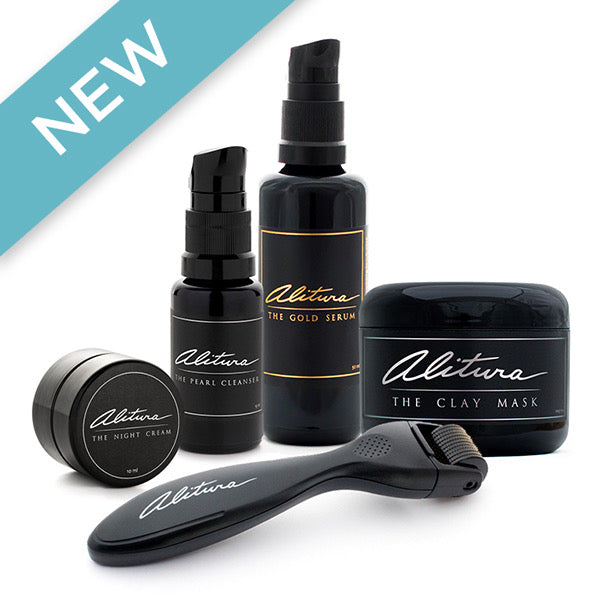The Skin Benefits of Zinc
Could a zinc deficiency be at the root of your skin issues? Plenty of the body's organs, glands, and tissues require generous supplies of zinc to function, including your skin. In fact, the skin is the third most zinc-abundant tissue in the body and requires adequate supplies to maintain a healthy state.
If you suffer from any of the following symptoms, it’s possible that you are not getting enough zinc:
- Stretch marks
- Acne
- Eczema
- Psoriasis
- Bacterial skin infections
- Hair loss
- White spots on the nails
- Slow wound healing
These are just some of the common ways a zinc deficiency can affect the health of your skin.
Zinc and Skin Health
The skin and its various layers consisting of the epidermis, dermis, and subcutaneous layer, all use zinc for some function. Ultimately, zinc is used as a transporter for cellular communication between each skin layer. When zinc is deficient, the skin cells cannot communicate efficiently. This can result in a wide variety of skin disorders caused by dysregulation of the zinc transporters.
Zinc and Inflammation
One example of this is immune system deficiencies. When zinc is deficient, the skin cells cannot transport certain proteins, and this can result in a compromised barrier system or immune system. In other words, the skin is more prone to inflammation and infection when it lacks the proper amount of zinc. 1
Most skin conditions associated with a zinc deficiency are related to inflammation and immune issues, like bacterial infections. If you are someone suffering from chronic inflammatory conditions or get recurring bacterial infections on the skin, it is possible your skin could benefit from more zinc.
Zinc and Hormones
Zinc is an important precursor to the production of testosterone and dopamine – learn more about how dopamine effects skin health in this previous article. Testosterone is important for the skin because it generally promotes more youthful skin. Zinc also keeps estrogen in check by acting as a precursor to testosterone and is also an anti-aromatase mineral, meaning it blocks the conversion of testosterone into estrogen. 2
Estrogen can be very damaging to the skin by increasing the production of hyaluronidase, an enzyme that catalyzes the degradation of hyaluronic acid, which leads to the breaking down of the skin tissue. In other words, estrogen can age the skin and cause wrinkles. So consuming enough zinc to ensure testosterone production may be useful to mitigate the aging effects of estrogen.
Reasons for a Zinc Deficiency
There are many reasons you might have a lack of zinc, the most obvious being that you are not consuming enough through diet. In addition, stress can be a cause. Stress increases the body’s demands for zinc, be it any form of chronic stress including intense exercise, sleep deprivation, alcohol consumption, low-calorie dieting, or even psychological stress.
Another major cause of a zinc deficiency is low stomach acid, which can cause poor absorption of zinc.
Fortifying the Skin with Zinc
The Recommended Dietary Allowance (RDA) for zinc is around 11mg for males and 8mg for females. However, these values can change depending on age, stress, and health. Generally speaking, the more stressed and less healthy you are, the more your body will likely tolerate. To be safe, start with the recommended allowance.
We recommend getting zinc through a whole foods diet for a few reasons. First, mineral supplements often come in “free metal form”, which may be reactive and cause mineral imbalances. Secondly, whole food forms of zinc also contain other important nutrients many of us lack.
That being said, the top zinc-rich foods include:
- Oysters (3 ounces, raw): 14.1 mg
- Polyrachis Black Ant Extract (1 g): 12-15 mg.
- Beef (3 ounces): 5.6 mg
- Crab (3 ounces): 3.6 mg
- Pork (3 ounces): 2.7 mg
- Turkey (4 ounces): 2.3 mg
- Chicken (3 ounces): .9 mg
- Whole milk yogurt (4 ounces): .7 mg
- Milk (1 cup): 1 mg
- Cheese (1 ounce): .9 mg
Final Considerations
Zinc may not be the cure to all to your skin troubles, but correcting a deficiency can be a very good place to start. Your skin will likely benefit either way by increasing your intake of zinc-rich foods.
It’s also important to note that consuming too many grains, legumes, nuts, and seeds may attribute to a zinc deficiency. These foods are high in phytic acid, a plant chemical that can fasten to zinc and inhibit its absorption. On the other hand, most animal proteins increase the absorption rate of zinc and contain high levels of it.
In addition to adding zinc-rich foods into your diet, switch to natural skincare products to help maintain healthy skin. Our new spa quality Complexion Perfection Package is a great place to start.











Leave a comment